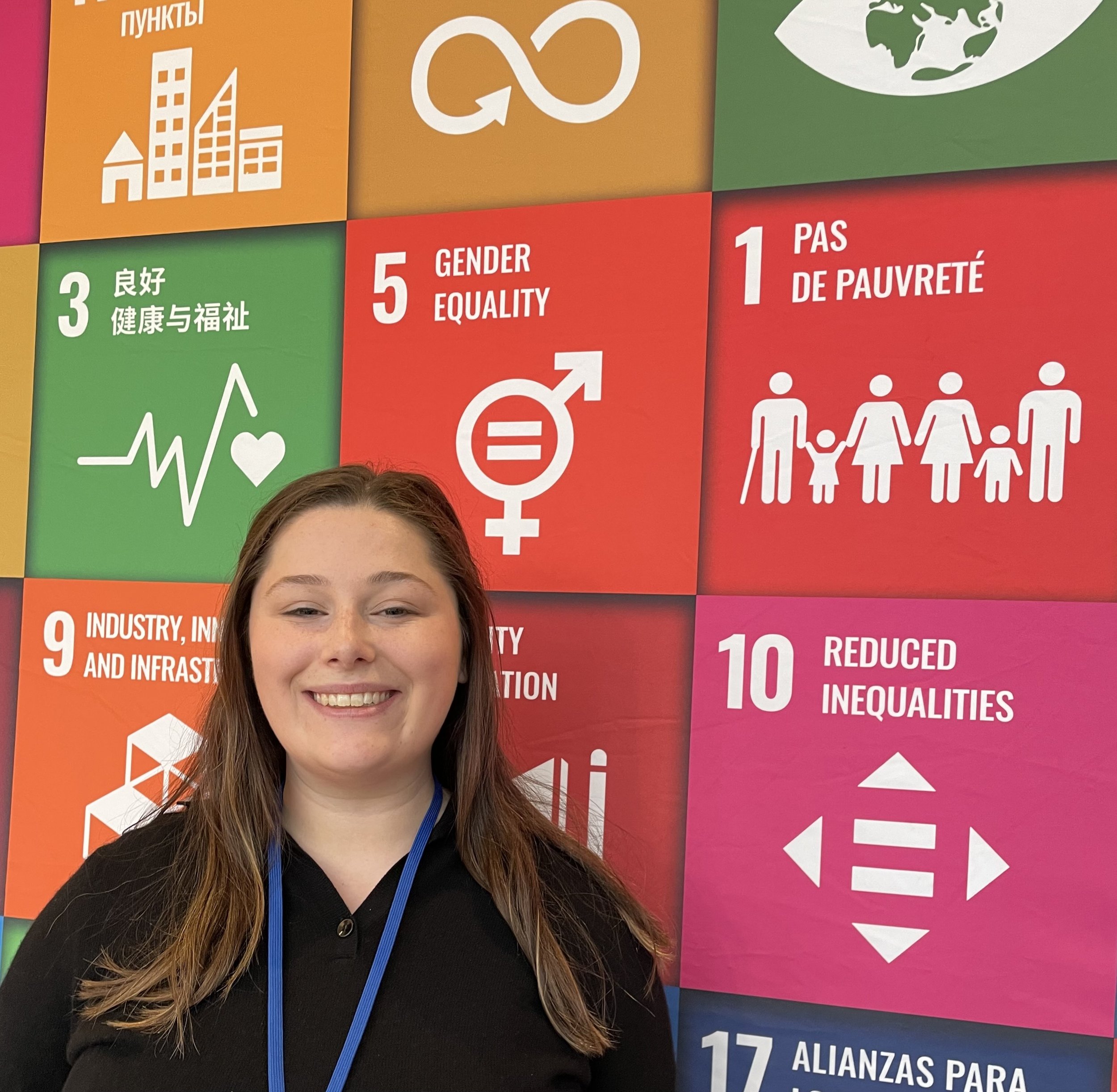UN Water Conference: A Once in a Lifetime Experience
By Sarah Birnbaum
It was a once in a lifetime experience to attend the 2023 UN Water Conference in NYC. It was the first UN Water Conference in almost 50 years. Growing up in the San Francisco Bay Area, I became keenly aware of water quantity related issues at a young age. This sparked my interest in an environmentally based career centered around conservation, leading me to enroll at Tufts University. I was very excited to learn that I would be taking part in the conference and have the ability to apply my learning from the classroom to a real-world setting. The conference took place over the span of three days with main events located at the UN Headquarters. There were also side events located in the UN, as well as throughout New York City. I attended events that focused on transboundary water diplomacy, the intersection of water and climate, as well as WASH (water, sanitation, and hygiene). It was great to see people around the world come together to talk about water related issues.
Sarah Birnbaum at the UN Water Conference
The first day of the conference, I attended a side event titled Cross-sectoral Partnerships to Accelerate Progress Towards Inclusive Sanitation. Stakeholders from around the world talked about urban sanitation and the need for resilient wastewater systems in the Global South. A panelist from Brazil noted that there often is not a legal requirement for the integration of WASH, resulting in limited enforcement. With players being aware that often their detrimental behaviors will not result in legal ramifications, it often hinders the ability to make progress on WASH related issues.
Later that day, I attended an event off campus at the Turkish Consulate that focused on the intersection of science and transboundary water diplomacy. The panelists stressed that for transboundary water diplomacy to be successful, parties should engage in trust-building activities that are mutually beneficial. Also, a panelist emphasized the importance of integrating science into decision-making.
On Wednesday, I attended another side event that focused on the intersection between water and women’s rights. Panelists illustrated how WASH related issues adversely impact women of reproductive ages at higher rates than men, especially in developing countries that lack adequate access to menstrual hygiene products. On average girls of reproductive ages in developing countries miss three days of school per month due to menstruation, as they lack access to sanitation products. Some girls even drop out of school once they hit puberty, with this being most prevalent in rural communities located in South Asia and Sub-Saharan Africa. Panelists highlighted that menstrual health is not explicitly noted in the UN Sustainable Development Goals (SDGs) and called for updates in the SDGs to better reflect feminine hygiene. Additionally, panelists discussed how women likely will be disproportionately impacted by climate change compared to men. Often in developing countries, fetching water is a woman’s job. With water scarcity expected to increase with climate change, the time it takes to find an adequate water source will likely grow, taking time away from women being able to attend school or take part in jobs that accrue wealth. It is possible that this will lead women to become more dependent on men.
I spent the rest of the week attending other main events and side events. As the week went on, I started to see some familiar faces. Everyone I talked to was very friendly and excited to talk about water related issues. It was great to meet people from around the world and hear about their life experiences and perspectives on water. For anyone interested in attending a similar event I would highly recommend.
Sarah Birnbaum is a M.S. in sustainability student at Tufts University.


